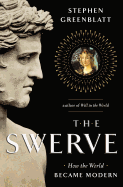
In 15th-century Italy, Poggio Bracciolini landed a position as apostolic scriptor for popes. As Stephen Greenblatt (Will in the World) shows so brilliantly, Poggio did not achieve fame by his hand alone, though; he earned it with his nose for scavenging for books.
Poggio dug through the libraries of far-flung monasteries in search of copies of tomes written during the glory days of the Roman Empire. During the winter of 1417, in a German monastery, Poggio found a long poem entitled "De rerum natura" ("On the Nature of Things") by Titus Lucretius Carus. He recognized the poem's aesthetic qualities immediately, had a scribe make a copy (books did not leave the monastery under any circumstances) and sent the copy to his Florentine friend Niccolò Niccoli.
In his poem, Lucretius had distilled the work of the Greek philosopher Epicurus. "The highest goal of human life is the enhancement of pleasure and the reduction of pain," Lucretius wrote, in addition to noting that the universe was not created for or about humans. After a thousand years in the shadows, the words of Lucretius struck the writers and artists of Renaissance Italy like a thunderbolt. Culture, from the sixth century until the 15th, had been operating under the principle that the pursuit of pain trumped the pursuit of pleasure; this poem challenged that central fact of life, along with almost every other element of Christian orthodoxy at the time.
Greenblatt writes with such fluency and facility of the process by which "De rerum natura" reentered the cultural consciousness that we are pushed to consider the alternative: What if Poggio had not found the book in the monastery's library? Greenblatt's tale makes us hyper-aware of our ability now to download any text in a matter of seconds without fear of being drawn and quartered for satisfying our intellectual curiosity. --John McFarland, author

